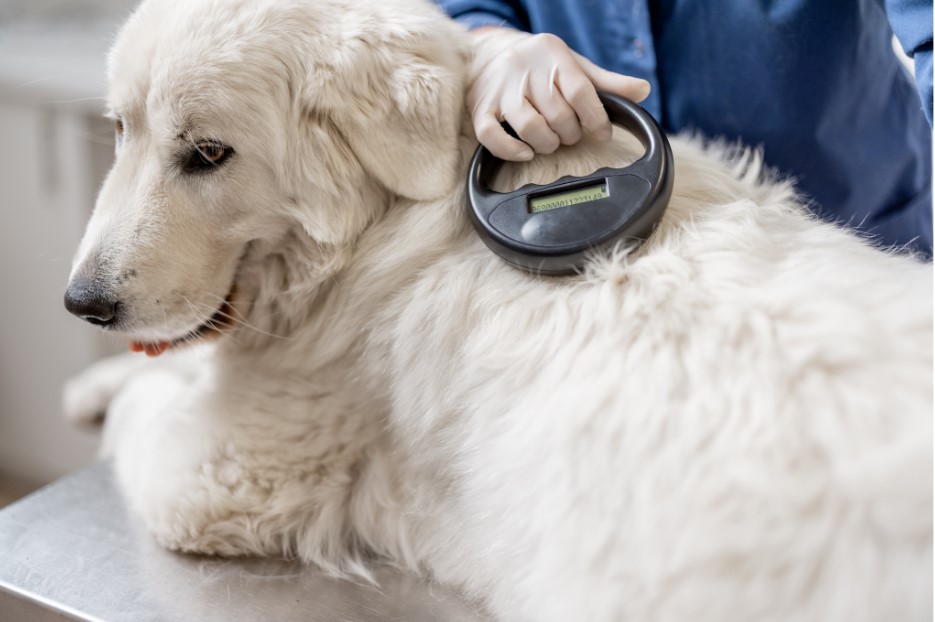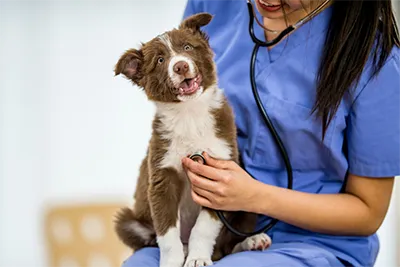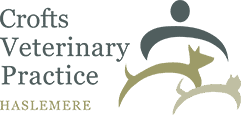What Is Dog Neutering?
Dog Neutering is the process of removing the reproductive organs of your pet to ensure they do not have unwanted litters.This helps to safeguard your pet from the myriad of health problems that can arise out of unwanted pregnancies. In male dogs, both testes are removed; this is known as ‘castration’. In female dogs, either the uterus is removed or both the uterus and the ovaries; this is known as ‘spaying’.
Spaying a female dog eliminates the ability to reproduce, and your dog will no longer come into season. Females can be neutered from six months of age; for most breeds, we suggest spaying females before they have had a season, known as pre-season. If your dog is older than six months or has already started having seasons, we would need to wait three months after a season to ensure we are operating at the best possible time.
Book a Dog Neutering Appointment
Dog Neutering & Spaying Services in Surrey 
Dog neutering or spaying your dog:
-
Prevents unwanted pregnancies and womb infections.
-
Can help prevent tumours and breast cancer.
-
Can also help prevent testicular cancer and prostate disease.
-
Assists in preventing roaming and aggressive behaviour
-
It’s normal to neuter! 71% of owned dogs in the UK are neutered*.
*PSDA Paws report 2020
At What Age are Dogs Neutered or Spayed?
Neutering is usually carried out at around six months of age for males and pre-season for female dogs, reducing the likelihood of females developing mammary cancer. We would also consider your dog’s breed, size, overall behaviour and other risk factors to provide the most suitable recommendation for your dog based on the latest evidence.
Male dogs older than six months can be neutered at any stage; however, we would still consider the dog’s breed, size, overall behaviour and other risk factors upon discussion of the procedure.
If your dog is not spayed before her first season, we would wait three months after the season.
Should I let my dog have one litter before spaying her?
This happens to be a common question, and there are no known health benefits to letting your dog have a litter; this is also the same for cats and rabbits.

General Anaesthesia
Your pet requires a general anaesthetic for neutering; here at Crofts Vets Surgery , we have measures in place to ensure their safety during the procedure. A dedicated Registered Veterinary Nurse (RVN) will monitor your pet throughout their surgery and recovery. All anaesthesia comes with some form of risk; however, these are very low, especially neutering, as pets are often young, fit, and healthy when having this procedure.
Risk levels of anaesthesia increase with a pet’s age, certain breeds and if your pet has any underlying health conditions. We can perform a pre-anaesthetic blood test before your pet’s surgery, to detect any underlying illnesses; this can be discussed when booking in for the procedure and on the day of their surgery. Your pet will receive a premedication to relax them and will also receive two types of pain relief. Rest assured the Crofts Vet Surgery team will be with your pet every step of the way.
Dog Neutering in Surrey: Your pet will stay the day with us
On the day of the procedure, please bring your dog on a secure harness or lead; during the admission appointment, we will discuss the procedure and go through the consent form. Please note we must gain a signature from the registered owner (over 18) or authorised agent on the consent form. Your dog, cat or rabbit will be admitted as a ‘day patient’, and they will be discharged later that day once our team are happy with how your pet has recovered.
Book a Dog Neutering Appointment Today
Pet Health Plan Offer
Our health club offers preventative health, and you could be saving each year on what you spend on your pet treatment wise.







